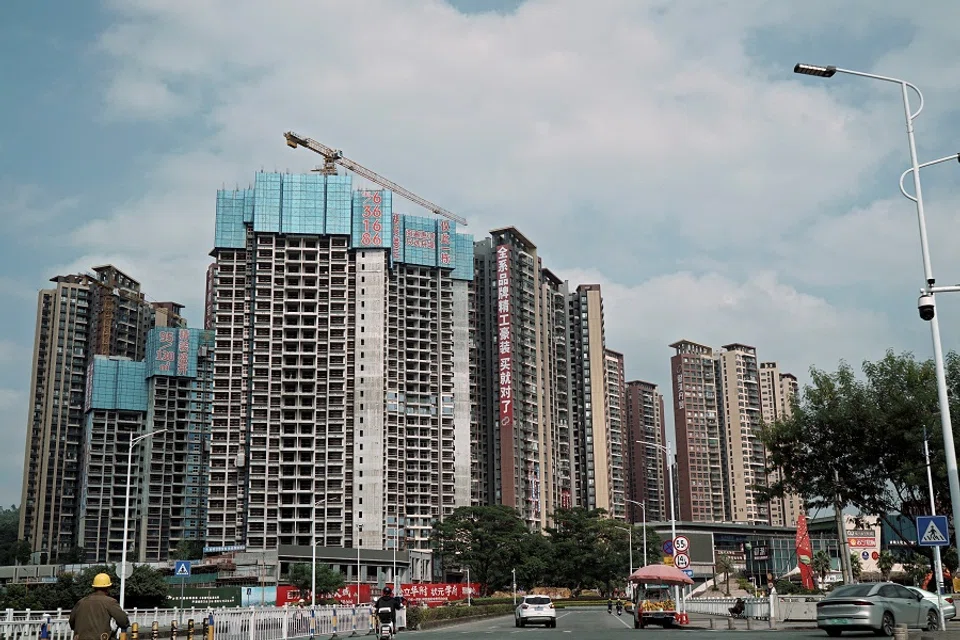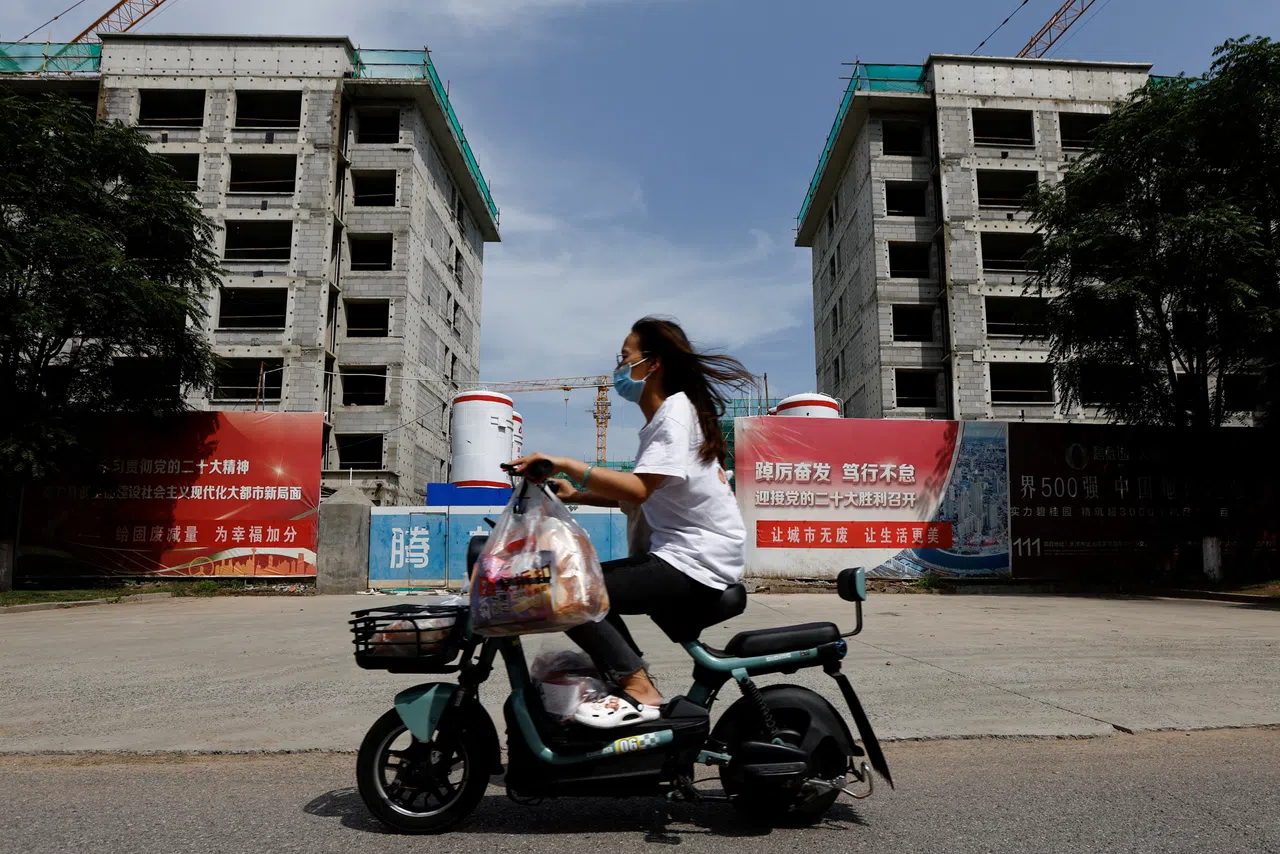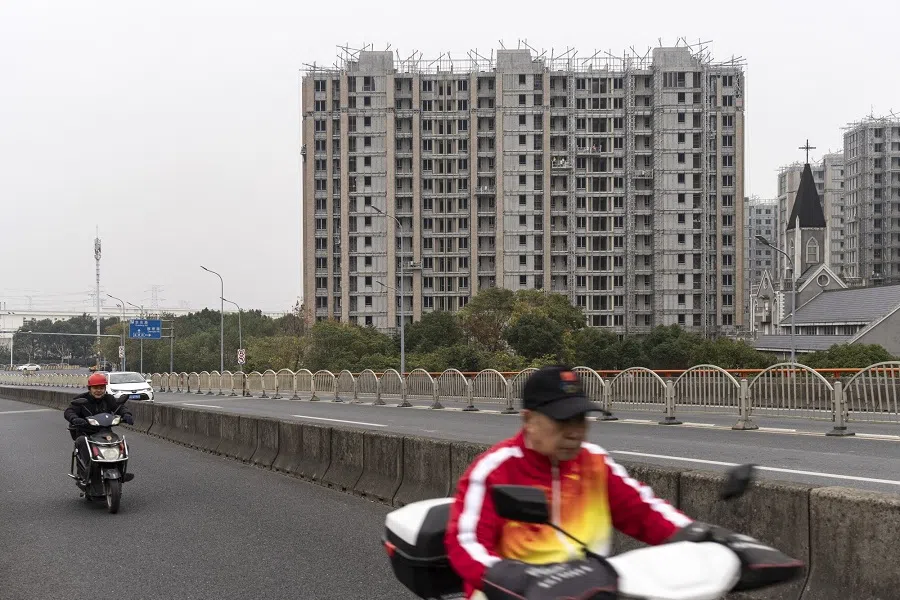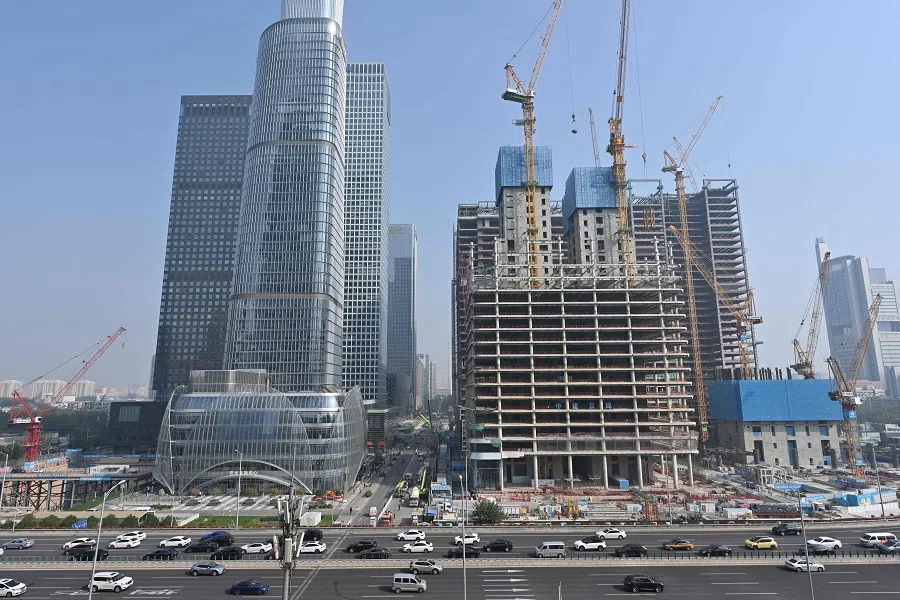Cash-strapped governments, struggling developers: China’s land surrender dilemma
With China’s property market in a slump, some property developers have no choice but to “surrender” previously acquired unused land to local governments. However, cash-strapped local governments are slashing buyback prices significantly, leaving struggling developers in a dilemma. Lianhe Zaobao Shanghai correspondent Li Kang tells us more.

“Surrender the land and I have to accept the local government’s rock-bottom price. Hold onto it, and I sink more money into a project with no clear market prospects,” says Liu Jun (a pseudonym), an experienced industry insider in Shanghai, in an interview with Lianhe Zaobao.
Surrendering undesirable land
‘Land surrender’ refers to developers returning previously acquired land to the local governments. This enables the developers to ease their cashflows and focus their resources to deliver their projects. The local governments can also reclaim unused land and re-plan its use, thus minimising wastage of land.
However, due to local governments’ strained finances, these buybacks — which often cost hundreds of millions of RMB (100 million RMB is approximately US$13.7 million) — are a costly expense. Land surrender has become a point of contention between local government and developers. Land that developers previously fiercely competed for is now burdensome and undesirable — a ‘hot potato’ that nobody wants to hold.
...local governments also use tactics like designating the surrendered land for affordable housing, where prices are significantly lower than for commercial use.
According to Liu, the developers who contact the local governments for land surrender are usually prepared for slashed prices, often hoping to recover 60-70% of their original purchase price. In practice, however, the price cuts by the local governments are much steeper, at a further 40% less than the 60-70% of the original purchase price.
Liu adds that the local governments also use tactics like designating the surrendered land for affordable housing, where prices are significantly lower than for commercial use. This results in a further reduction to the quantum that the developers can recoup.
Cash-strapped local governments
When asked how many developers are considering land surrender, Liu pauses before saying, “Every developer with undeveloped land has probably considered it. But seeing others hit a brick wall, they realise it’s pointless.”
He frankly admits that most developers understand it is currently “extremely difficult” to get government funding “because the coffers are empty.”

In the past two months, China’s Central Government has introduced several measures to address these financial issues. In November 2024, the Ministry of Natural Resources encouraged local governments to acquire unused land using special bond funds. On December 16 2024, Premier Li Qiang chaired a State Council meeting to optimise the management of these funds, prioritising the real estate market, signalling intensified efforts to revitalise idle land.
However, given local governments’ diverse funding needs, it is unclear whether these special bond funds will actually be used for land reacquisition or diverted to other priorities.
Liu describes the allocation process as a “fiscal geometry problem”, balancing competing demands, including corporate debt repayment and ensuring the “three guarantees” of basic well-being, salary payments, and government operations.
Liu disclosed that when local governments reacquire land, they often offer incentives like increasing plot ratios to allow developers to build more units or extending land-use rights from 40 years to 70 years, provided developers contribute additional funds. However, Liu is skeptical about the effectiveness of these policies. “When developers are willing to stomach losses just to recover some funds, it shows that they have no confidence in the future. Why would they invest more?”, he added.
...reasons [for land surrender] include poor development prospects, the developers’ lack of interest or ability to develop, and their financial constraints.
Land surrenders mostly by central and state-owned enterprises
Despite the difficulties faced by some developers, there have been successful land surrenders in Guangzhou, Wuhan, Tianjin and Fuzhou. Having compiled these cases, Lianhe Zaobao has found that it is mostly central or state-owned developers which have completed land surrenders.

For example, Overseas Chinese Town Group (OCT Group), owned by China’s State-owned Assets Supervision and Administration Commission (SASAC) , returned a plot of land in the Yangchun Lake Business District adjacent to Wuhan’s high-speed rail station in November 2024.
After the Government revised its land-use planning, OCT Group re-purchased it in December 2024 at the base price of 2.42 billion RMB, a third of its original acquisition price. In its public announcement, OCT Group did not mention the disbursement it received for the land surrender.
Tianjin Investment Chengkai, a subsidiary of Tianjin’s SASAC, had a plot of land reacquired by the local land management authority for 1.71 billion RMB in September 2024. Within a month, Tianjin Investment Chengkai received two disbursements, totalling 368 million RMB, for the land surrender.
Since August 2024, the established state-owned Yuexiu Property surrendered three plots of land in Guangzhou for 7 billion, 5 billion and 1.529 billion RMB respectively, totalling more than 13.5 billion RMB. These were acquired during the 2021 land boom. According to real estate newspaper China Real Estate Business, one of these plots in Panyu District in Guangzhou was sold to China Vanke, another SOE, in a 2.88 billion RMB bid on 17 December. This is yet another example of SOEs helping each other and recycling land resources in China.
...smaller third- and fourth-tier cities, as well as some prefecture-level or provincial capitals experiencing market volatility, are more actively pursuing land reacquisition.
Predominantly in third- and fourth-tier cities
In an interview with Lianhe Zaobao, Yan Yuejin, deputy director of the Shanghai E-House Real Estate Research Institute, said that the recent land surrenders were mainly initiated by central or state-owned developers. The reasons include poor development prospects, the developers’ lack of interest or ability to develop, and their financial constraints.
Yan observed that smaller third- and fourth-tier cities, as well as some prefecture-level or provincial capitals experiencing market volatility, are more actively pursuing land reacquisition. In contrast, such activities and disclosures are far less common in first-tier and new first-tier cities.

Following the November 2024 policy allowing the use of special bond funds for land purchases, regions like Shandong and Hunan have convened special meetings and issued calls for expressions of interest.
However, Yan pointed out that land surrenders are mostly being processed through methods like settlement via notes payable or direct buybacks with fiscal funds, not directly involving special bond funds. Nonetheless, he believes that special bond funds are a crucial, perhaps even primary, source of funding for land reacquisition.
Any buyers after reacquisition?
Huang Tao, project general manager of Centaline Property in Guangzhou, believes that the government is more inclined towards controlling new land releases to enable the market sufficient time to absorb the released land. This is preferred over the repeated process of land releases and buybacks.
Huang adds that land surrender is a normal practice that is not entirely negative. The returned land can be put up for bidding or auction at the appropriate time, which is “a healthy way to recycle land”.
“If a buyer exists, the government might happily broker the deal,” he explains. “But without one, the government simply slashes prices.” - Yan Yuejin, deputy director, Shanghai E-House Real Estate Research Institute
Yan also believes that reacquiring to hold land is merely a phase in land development and that the land will ultimately be resold. “Therefore, it is necessary to attract and encourage developers to more quickly absorb the released land”.
However, Liu cautions that finding willing land buyers is a challenge for developers. “If a buyer exists, the government might happily broker the deal,” he explains. “But without one, the government simply slashes prices.” He adds, “Central and state-owned enterprises can support each other like ‘siblings’, but private developers face a much tougher situation.”
This article was first published in Lianhe Zaobao as “中国房地产开发商陷入“退地”难”.





